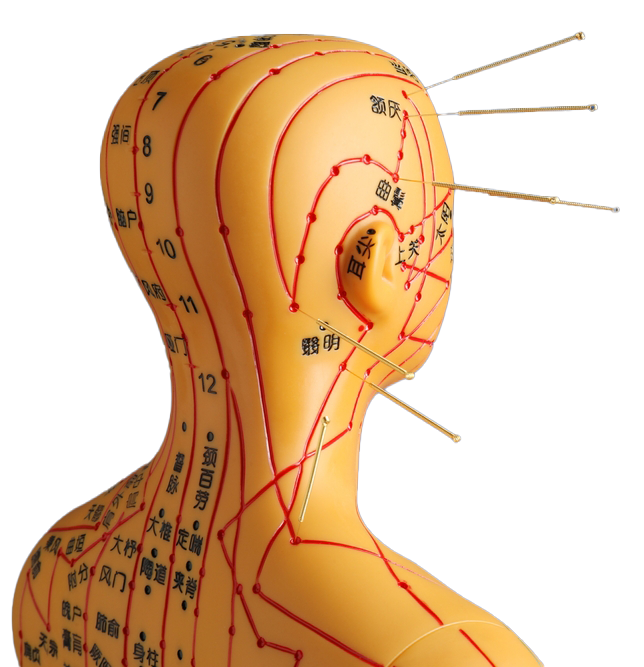- Facet joint Radiofrequency Thermocoagulation (RFT) Treatment
- Radiofrequency Thermocoagulation Dorsal root ganglion (DRG) radiofrequency thermocoagulation (RFT)
- Discitis Procedure
- Sacroiliac Joint Radiofrequency Treatment (Simplicity)
- In-Disc Ozone Therapy
- Nucleoplasty
- Transforaminal Injection (Pinpoint)
- Facet joint block
- Epidural Injection
Stress management
- Home
- Pain Prevention
- Stress management
Contents
Toggle- Creating an individualised treatment plan
- The role of different specialities (physiotherapist, orthopaedist, psychologist, neurosurgeon)
- Pain treatment during pregnancy
- Treatment of chronic pain in the elderly
- Pain management in children
- Stress management
- Healthy eating
- Ergonomic living arrangements
- Exercise and mobility
- Facet joint Radiofrequency Thermocoagulation (RFT) Treatment
- Radiofrequency Thermocoagulation Dorsal root ganglion (DRG) radiofrequency thermocoagulation (RFT)
- Discitis Procedure
- Sacroiliac Joint Radiofrequency Treatment (Simplicity)
- In-Disc Ozone Therapy
- Nucleoplasty
- Transforaminal Injection (Pinpoint)
- Facet joint block
- Epidural Injection
- Cancer pain
- Permanent Epidural / Spinal Port Application
- Vascular Port (Permanent Vascular Access)
- Trigeminal Nerve RFT
- Blockade of Ganglion Stellatum
- Lumbar Sympathetic Ablation
- Facet joint Radiofrequency Thermocoagulation (RFT) Treatment
- Radiofrequency Thermocoagulation Dorsal root ganglion (DRG) radiofrequency thermocoagulation (RFT)
- Hernia Burning (IDET)
- Discitis Procedure
- Sacroiliac Joint Radiofrequency Treatment (Simplicity)
- Permanent Epidural / Spinal Port - Pump System
- In-Disc Ozone Therapy
- Nucleoplasty
- Peripheral Nerve Block
- Transforaminal Injection (Pinpoint)
- Facet joint block
- Epidural Injection
- Intra-articular Fluid Treatment
- Dorsal root ganglion (DRG) radiofrequency thermocoagulation (RFT)
- Spinal cord stimulation (pain pacemaker)
- Ergonomic living arrangements
- Spinal cord stimulation (pain pacemaker)
- Nucleoplasty
- Radiofrequency ablation
- Herbal solutions
- Dry needle treatment
- Anti-ageing treatments
- Ozone therapy
- Cupping therapy - Cupping
- Mesotherapy
- Prolotherapy
- Acupuncture
- Stem Cell Therapy
- Nerve blockages
- Corticosteroid injections
- Massage and relaxation techniques
- Manual therapy
- Electrotherapy
- Neuropathic pain medications
- Anti-inflammatory drugs
- Muscle relaxants
- Painkillers (paracetamol, ibuprofen, etc.)
Stress managementIt is an approach that increases the individual's capacity to cope with stress and develop strategies to minimise the negative effects of stress. Stress is an inevitable part of modern life; however, when not managed effectively, it can negatively affect physical, mental and emotional health. Below, comprehensive information and applicable methods on stress management are presented.
1. Definition and Symptoms of Stress
1.1 What is Stress?
Stress is a physiological and psychological response that occurs when an individual has difficulty coping with internal or external pressures. Short-term stress can provide motivation; however, long-term (chronic) stress can lead to health problems.
1.2 Symptoms of Stress
The effects of stress may differ from individual to individual and may occur at physical, emotional, mental and behavioural levels:
- Physical Symptoms
- Headache, stomach problems, muscle tension
- Fatigue, insomnia, palpitations
- Appetite changes (overeating or loss of appetite)
- Emotional Symptoms
- Anxiety, irritability, restlessness
- Depressive feelings, sense of helplessness
- Impatience, easily angered
- Mental Symptoms
- Difficulty concentrating
- Difficulty in decision making
- Constant worry and negative thoughts
- Behavioural Symptoms
- Increased alcohol or cigarette consumption
- Social withdrawal
- Decreased productivity and forgetfulness
2. Importance of Stress Management
Effective management of stress not only reduces the negative effects of stress, but also improves overall health and quality of life. Effective stress management ensures
- Physical Health: It prevents stress-induced health problems such as high blood pressure, heart diseases and immune system weakening.
- Mental Health: Reduces the risk of depression, anxiety disorders and burnout syndrome.
- Productivity: Improved focus, creativity and work performance.
- Relationships: It provides the opportunity to establish healthy communication and strengthen relationships.
3. Stress Management Methods
3.1 Physical Techniques
- Exercise
- Regular physical activity reduces stress hormones (e.g. cortisol) and increases happiness hormones (endorphins).
- Activities such as light walking, yoga, swimming or jogging are useful to alleviate the effects of stress.
- Breathing Exercises
- Deep Breathing: Inhale slowly through your nose, hold for a few seconds and exhale through your mouth. This technique regulates heart rhythm and stress.
- 4-7-8 Technique: Inhale for 4 seconds, hold for 7 seconds and slowly release for 8 seconds.
- Relaxation Techniques
- Progressive Muscle Relaxation: It provides physical relaxation by stretching and relaxing the muscle groups respectively.
- Hot Shower or Massage: Reduces muscle tension and mental stress.
- Sleep Pattern
- Adequate and quality sleep is one of the most basic ways to cope with stress. Lack of sleep increases the effects of stress.
3.2 Mental Techniques
- Mindfulness and Meditation
- Mindfulness (Mindfulness): It is a technique used to focus on the present moment and put aside worries about the past or the future.
- Meditation: Calms thoughts, provides mental clarity and reduces stress.
- Positive Thinking
- Recognising negative thoughts and replacing them with positive perspectives alleviates the effects of stress.
- Giving thanks for a few things every day makes it easier to cope with stress.
- Time Management
- Prioritise your tasks and break them down into small chunks to make them doable.
- Avoid procrastination and do not hesitate to ask for help when needed.
- Goal Setting
- Setting realistic and achievable goals helps to control stress.
- It is important to avoid excessive expectations.
3.3 Social Techniques
- Support Networks
- Talking to family, friends or a therapist relieves the burden of stress.
- Sharing your feelings and asking for help is one of the advantages of a strong support system.
- Social Activities
- Spending time with your loved ones, taking care of hobbies and doing activities that you enjoy reduces stress.
- Learning to Say No
- Learn to set limits to the demands on your time and energy. This prevents overload and reduces stress levels.
3.4 Healthy Living Habits
- Healthy Eating
- Instead of turning to unhealthy foods during stress, eat a balanced diet. Foods rich in omega-3 fatty acids, magnesium and B vitamins can reduce stress.
- Limit Caffeine and Alcohol Consumption
- Excessive caffeine or alcohol consumption can increase stress; it is helpful to limit these.
- Hobbies and Pleasurable Activities
- Activities such as painting, listening to music, gardening are effective ways to manage stress.
- Spending Time in Nature
- Walking in green areas, spending time on the beach or strolling in the woods calms the mind and improves general well-being.
4. Things to Consider in Stress Management
- Recognising Stress
- Identifying the source of stress and recognising triggers is important for finding the right solutions.
- Getting Professional Help
- In cases of chronic stress or unmanageable anxiety, support from a psychologist or psychiatrist should be sought.
- Starting with Small Steps
- Instead of trying to apply multiple stress management techniques at the same time, make it a habit to start with one or two methods.
- Patience
- Stress management is a process and can take time. With regular practice and patience, you can achieve effective results.
5. Long Term Benefits
- Better Physical Health: Lowering of blood pressure and cortisol levels.
- Increased Mental Clarity: Improved focus, judgement and memory.
- Strong Social Relationships: Healthier communication and social bonds.
- General Well-being: Increased level of happiness and life satisfaction.
Summary
Stress management helps individuals to lead a more balanced and peaceful life by protecting their physical and mental health. Methods such as exercise, meditation, breathing techniques, healthy eating, social support and positive thinking are effective tools to alleviate the effects of stress. However, since each individual is different, stress management methods should be personalised and applied regularly. In cases of chronic stress, it is important to seek professional help. Remember, stress is inevitable, but how you manage it is entirely in your hands.
Our treatments
- Home
- Pain Prevention
- Stress management





